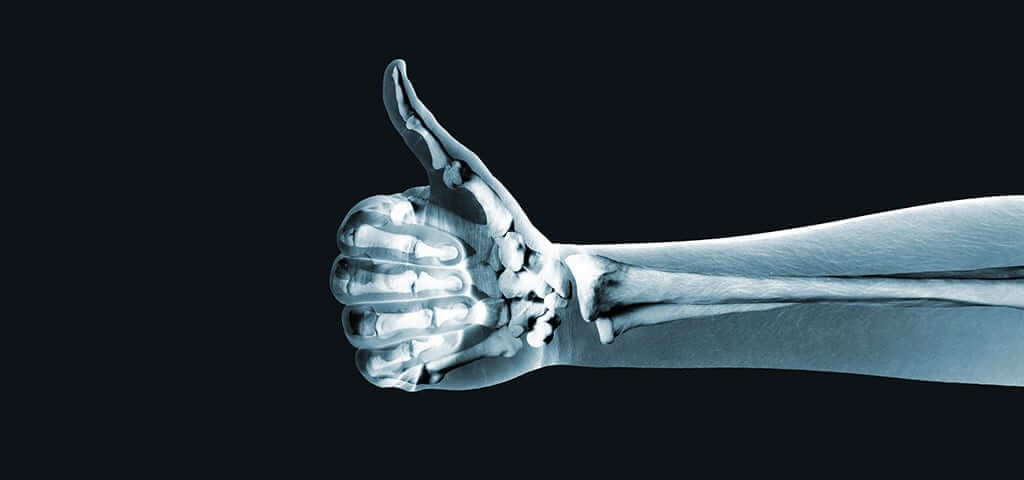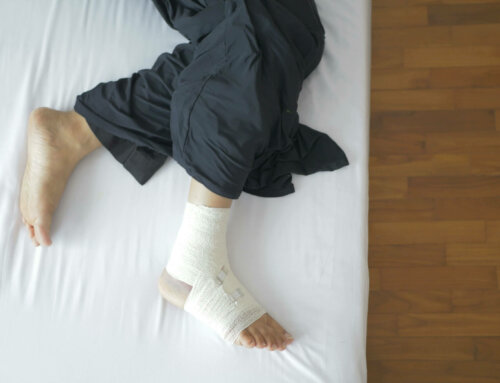Diabetes affects your blood sugar, but it may also lead to other health issues, such as weakened bones. Poor bone health can be linked to diabetes as well as certain health complications associated with diabetes. Discover more about the connection between bone health and diabetes.
- People with diabetes tend to have low bone density, often have a sedentary lifestyle and may carry excess weight. These factors can increase the risk of getting bone fractures and developing osteoporosis. When diabetes is not properly controlled, the risk of fractures and bone loss is heightened.
- People with type 1 diabetes are at greater risk of osteoporosis due to the lack of insulin which is adds a growth factor for bone. Type 1 usually occurs during adolescence which is also a time of bone building.
- Additional risk factors when it comes to fractures are neuropathy and vision problems. Patients who have neuropathy can lose their balance, making them more susceptible to injuries. When a person with diabetes has trouble seeing, they can trip or fall more easily. It is important to maintain routine medical examinations with your regular doctor and specialists, such as a neurologist and an ophthalmologist. Your health care team will help you develop the most effective diabetes self-management plan to promote optimum well-being and better bone health.
- A well-balanced diet is the cornerstone to good bone health. Get calcium from foods such as almonds, broccoli, and spinach and low-fat dairy products. Vitamin D is found in foods such as egg yolks, low fat cheese, fat-free milk, tuna and fortified cereals. Try to include 600 IU of vitamin D in your daily diet. Talk to your doctor about taking supplements to ensure you get enough calcium and vitamin D. Get a healthy dose of vitamin D by spending 10 minutes in the sun every day without sunscreen; then put on sunscreen for the rest of the day.
- Exercising regularly can make a big difference in bone strength. If you are unable to workout for a half hour each day, try exercising in shorter sessions. Take a ten minute walk after each meal to burn calories and become more active. Walk a little bit longer each day and wear an Omron pedometer to gauge your progress. Always consult with your doctor before starting any exercise program. Any exercise which requires pounding on the pavement will improve bone strength.
- Fit weight-bearing exercise into your routine to help build bone strength. This includes exercises such as lifting weights or resistance training with elastic bands. Simple exercises such as standing heel raises and chair squats can benefit those with limited capabilities. An active lifestyle helps you maintain a healthier weight and preserve bone health. Exercising can also lower your blood sugar levels and enhance flexibility to reduce the chance of falling and fracturing a bone.
- Another important aspect to bone health is improving your balance. Try classes that include yoga or Tai Chi. When in line at the market or bank, stand on one foot to help develop your balance.
- Make sure there is good lighting in your home especially during the night to help prevent falls. Use night lights to help you navigate in the low light. Watch out for area rugs which may cause you to have an increased risk on falling. Make sure all corners are flat and have a rubber pad underneath to prevent slipping. Also tape down light and extension cords. Watch out for children’s and animals toys on the floor.
- Wear supportive slippers indoors which may help prevent falling as well. Do not wear just socks which may increase your likelihood of falling.
- Thinner bones may mean you have osteoporosis. Your bones become less dense and this increases the likelihood of fractures. Risk factors include smoking, being small boned, post menopause, being a female, low calcium and/or vitamin D levels, estrogen deficiency in women, drinking more than two alcoholic beverages per day, failure to exercise and certain medications including steroids. Limit caffeine and salt in your diet. Do not smoke. Other health issues, some linked with diabetes, can also lead to decreased bone health including kidney failure, stroke, celiac disease and nutritional disorders.
- Talk to your doctor about a bone density test. This can help your doctor detect osteoporosis before you break a bone. Women over the age of 65 and men over 70 are typically advised to get a bone density test. People with diabetes are often advised to take this test earlier. There is no cure for osteoporosis, but your doctor may recommend certain lifestyle changes and/or medications that may help treat the condition.
Genetics, certain health conditions and your lifestyle habits all play a role in your bone health. People with diabetes can achieve better bone health by exercising regularly, eating a balanced diet and staying away from bad habits. Talk to your doctor about making basic changes than can improve your bone health and boost your well-being with diabetes.







Leave A Comment